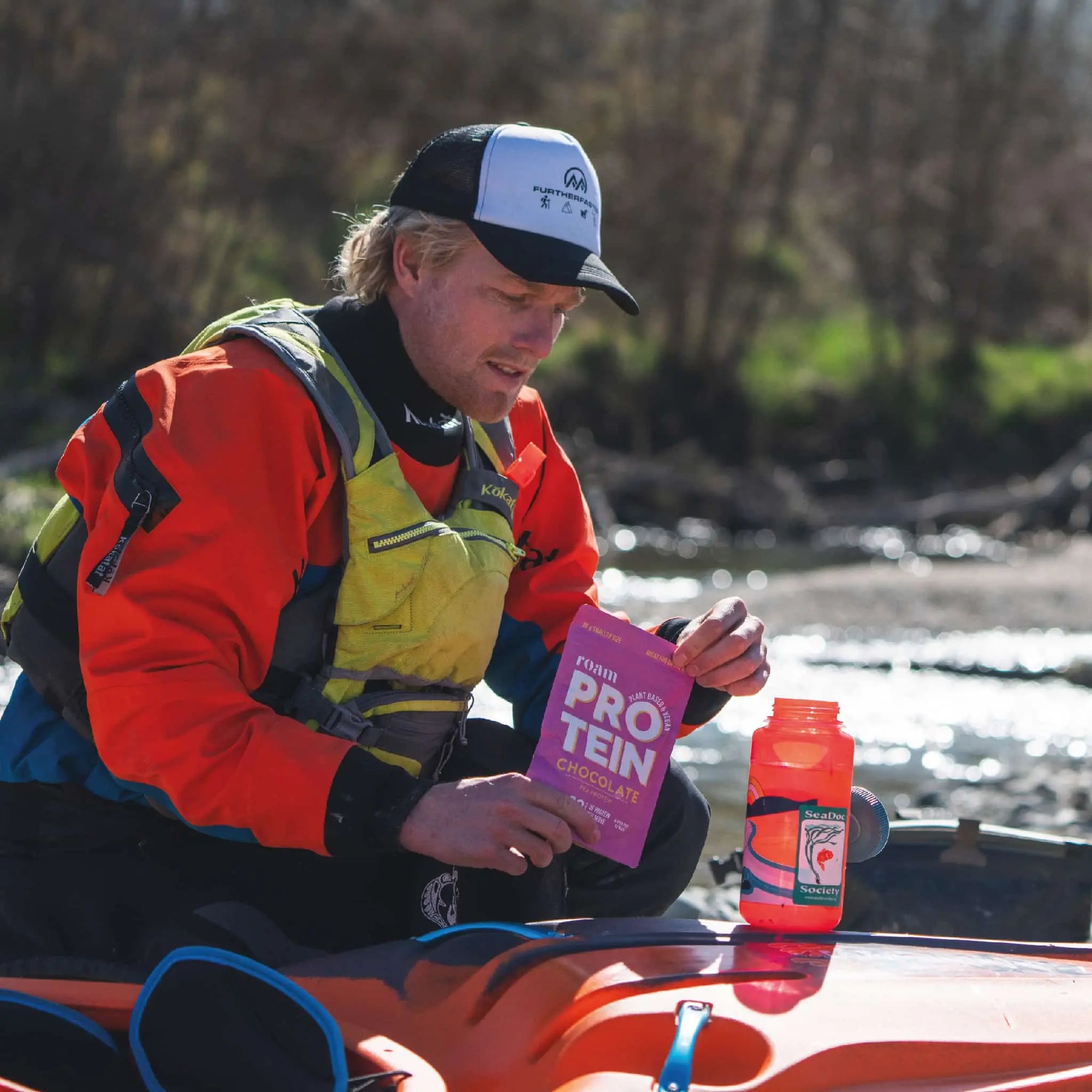The Link Between Skincare, Health Supplements and Sports Nutrition: The Rise of Peptides and Growth Factors
Recently, I’ve been seeing a lot of skincare content on TikTok, and one topic that keeps coming up is peptides and growth factors.
This got me thinking about the strong correlation between skincare and the world of health supplements and sports nutrition. Trends that emerge in one space often spill over into the other, shaping what we put on and into our bodies.
We’ve seen this happen before—collagen made the leap from skincare to supplements, probiotics transitioned from gut health to topical applications, and antioxidants like vitamin C became essential in face creams and superfood powders.
Now, peptides and growth factors are the latest skincare innovations that can also be found in the world of supplements and nutrition. But what exactly are they, and how do they function in both areas?
What Are Peptides and Growth Factors?
Peptides are short chains of amino acids that serve as building blocks for proteins like collagen and elastin, which keep skin firm and youthful.
In skincare, peptides are used to promote skin repair, improve hydration, and reduce the appearance of fine lines. They’re found in high-end serums, eye creams, and some hair care products.
Growth factors, on the other hand, are naturally occurring proteins that stimulate cell regeneration and tissue repair. In skincare, they’re often marketed as powerful anti-aging agents that promote wound healing and boost collagen production. These ingredients are typically derived from human, plant, or animal cells.

What About Peptides and Growth Factors in Health Supplements and Sport?
As skincare trends seep into the wellness and sports nutrition space, we’re also seeing peptides and growth factors pop up in supplements. Peptides, for example, are increasingly found in protein powders and health products, with collagen peptides being the most well-known example. They are marketed for their ability to support skin, joint, and gut health.
One peptide that has gained attention is BPC-157. It's a synthetic peptide, which is said to aid gut repair, muscle recovery, joint, ligament, and tendon healing, as well as offer anti-inflammatory benefits and improve deep sleep and anxiety.
Sport Integrity Australia describes it as an experimental drug - it doesn't have TGA or FDA approval and may cause negative health effects. However, it's readily available to buy online. BPC-157 is banned by WADA (World Anti-Doping Agency) and should not be used by competitive athletes (or anyone for that matter).
A range of peptide hormones are also banned under WADA such as testosterone-stimulating peptides.
Growth factors are different. While they are naturally present in colostrum (the first form of milk produced after birth) and some dairy products, their use in health supplements is controversial.
In professional sports, growth factors are banned substances due to their potential for enhancing muscle repair and regeneration, giving athletes an unfair advantage. This has led to regulatory concerns around their supplementation, especially in high-performance nutrition.
Are These Trends Here to Stay?
The crossover between skincare and health supplements is likely to continue as consumers become more invested in holistic health and ‘beauty from within’ approaches.
While collagen peptides in protein supplements are widely accepted, other types of peptide supplements and growth factors remain in murky territory, with ongoing debates about their ethical and legal implications in sports nutrition.
At Roam, we focus on real, natural ingredients that fuel adventure and support well-being without crossing into questionable territory. As the industry evolves, it’s always worth looking beyond the hype to understand what’s backed by science and what’s just another passing trend.
Discover Roam

 The Ultimate Roamer Bundle
The Ultimate Roamer BundleThe Ultimate Roamer Bundle
Regular priceUnit price per$329.96 AUDSale price $219.97 AUD
 Protein Essentials Bundle
Protein Essentials BundleProtein Essentials Bundle
Regular priceUnit price per$260.97 AUDSale price $179.98 AUD




 Mixed Energy Nut Butter Bundle – 3, 15, or 30 Pack
Mixed Energy Nut Butter Bundle – 3, 15, or 30 PackMixed Energy Nut Butter Bundle – 3, 15, or 30 Pack
Regular priceUnit price per$67.50 AUDSale price $13.50 AUD+


 Vanilla Plant Protein
Vanilla Plant ProteinVanilla Plant Protein
Regular priceUnit price per$64.99 AUDSale price $49.99 AUD
 Trio Protein + Shaker – 90g Protein
Trio Protein + Shaker – 90g ProteinTrio Protein + Shaker – 90g Protein
Regular priceUnit price per$100.69 AUDSale price $74.98 AUD















